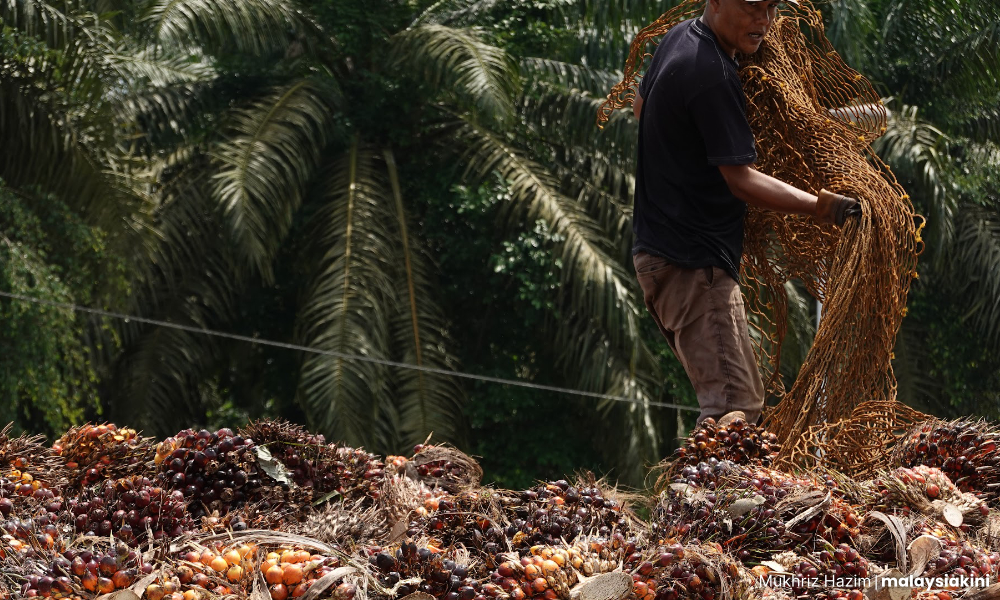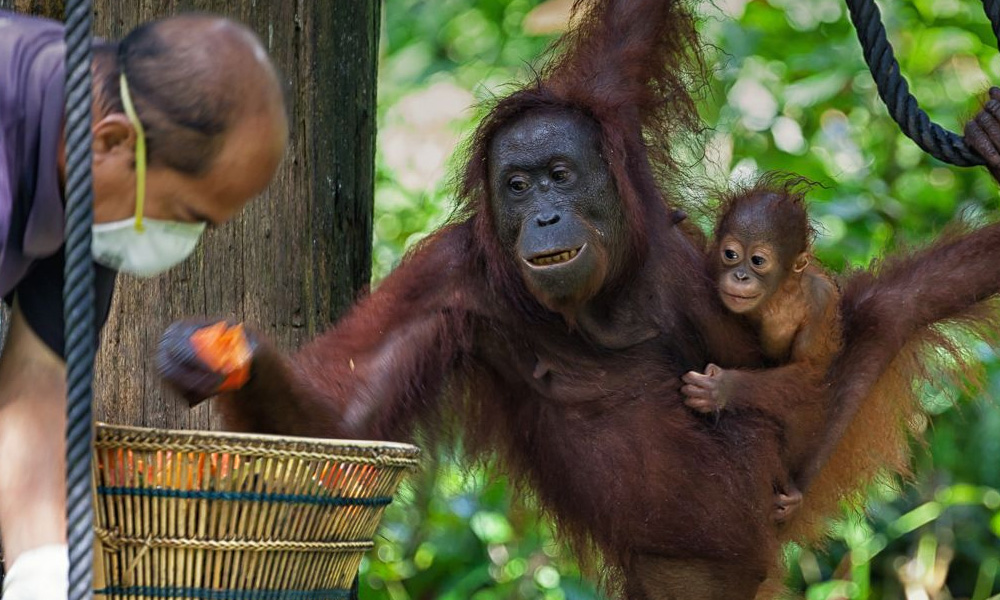I read the article headlined ‘‘M’sian diplomacy: Buy palm oil, get orangutan” and I must say I was greatly concerned.
Perhaps our Plantation and Commodities Minister Johari Abdul Ghani meant well, but is this the right thing to do?
I feel sorry for both the orangutan and the palm oil industry.
The palm oil industry has long been accused of causing deforestation and habitat loss for orangutans, and this proposal seems like an indirect way of admitting that the palm oil plantations are endangering orangutans, and orangutans should be placed in captivity for conservation purposes.
There is some truth to the fact that loss of forest and fire, does lead to a decline in orangutan populations. However, the government has implemented several policies that can ensure the long-term survival of wild orangutans.
In this context, sustainable forest management was introduced and implemented in Malaysia, with reduced-impact logging being practised specifically in Sabah to manage the timber production in the state, where orangutans are largely found.
Industry plays a role in conservation
Most of the wild orangutans are now well adapted in large areas of both logged and unlogged forests. In fact, Donna Simmon’s study published by the World Wide Fund for Nature in 2019, further confirmed that the orangutan population in Sabah has been stable for the past 15 years.
Besides, the Malaysian Palm Oil Green Conservation Foundation (MPOGCF), started by the Malaysian palm oil industry, has embarked on a few initiatives for the preservation and protection of orangutans.

Among the initiatives taken include the planting of one million forest trees within the Ulu Segama-Malua Forest Reserve in Lahad Datu, which is a key habitat for Bornean orangutans and pygmy elephants.
Additionally, a wildlife rescue unit was also established, whereby about 61 orangutans were treated and released into their natural habitat between 2010 and 2020.
MPOGCF is also working with Zoo Negara in conserving the in situ orangutan species and has sponsored RM1.1 million for upgrading the orangutan enclosure at Zoo Negara.
All these efforts demonstrate how much the Malaysian palm oil industry cares for the orangutans. And now we want to send them off as gifts?
No ‘orangutan diplomacy’
Another point to be stressed is that we cannot equate “orangutan diplomacy” to China’s “panda diplomacy” for several reasons.
Firstly, the panda is known as China’s national heirloom, as they are not found in any other nations except China.
China offered pandas on loan with cooperative research terms to other countries, and any offspring from breeding efforts in the recipient countries must be sent back to China usually by four years of age for mating.
Secondly, pandas are the most expensive animal in the world to keep. The expense of captive breeding pandas is expected to reach RM151 million by 2024 based on the latest report by the Natural Resources and Environmental Sustainability Ministry.
Meanwhile, orangutans exist in parts of Borneo and Sumatra. The symbol of Malaysia is the Malayan tiger and not the orangutan.
Preserving orangutans may cost less than you think. The cash spent on pandas can easily protect a lot more orangutans and other species in Malaysia.

If Zoo Negara can be the best caretaker of pandas in the world, I do not see any reason why we cannot care the same for our orangutans.
No doubt that orangutans are endangered, but we should not trade them as a commodity for human amusement. Orangutan conservation should prioritise habitat protection, and it does not make sense to transport them all over the world for conservation purposes.
On the contrary, orangutans should be allowed to live and breed freely in their natural environment. It is selfish to foster foreign relations with trading partners at the expense of orangutans’ well-being.
I sincerely hope that our plantation and commodities minister will reconsider this proposal. There are many ways to preserve wildlife species and ensure the sustainability of our forests.
One better option would be to upgrade the Malaysian Sustainable Palm Oil certification, aligning it with all the sustainability and legality requirements of the European Union Deforestation Regulation.
For the sake of orangutans, please do what is necessary! - Mkini
CHONG YEN MEE is a climate change analyst by training and enjoys writing doomsday stories that make people act.
The views expressed here are those of the author/contributor and do not necessarily represent the views of MMKtT.




No comments:
Post a Comment
Note: Only a member of this blog may post a comment.